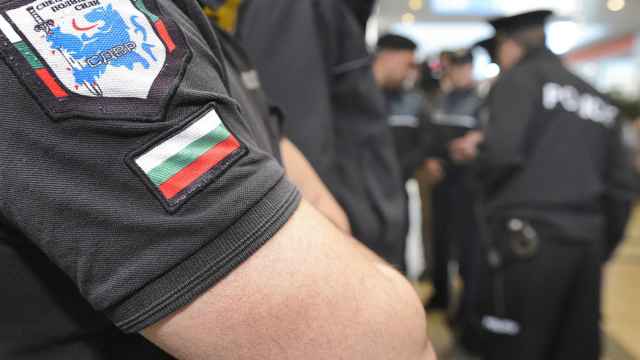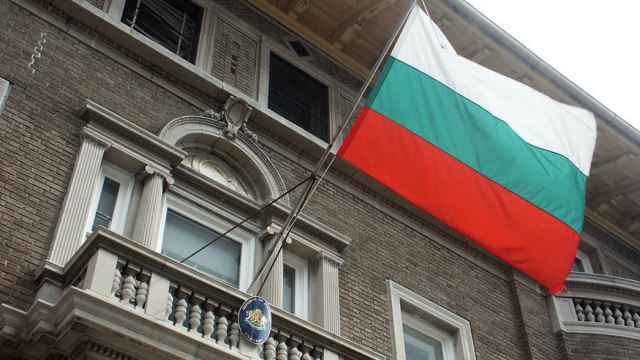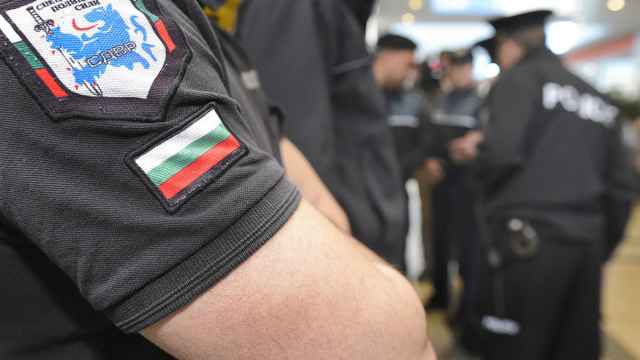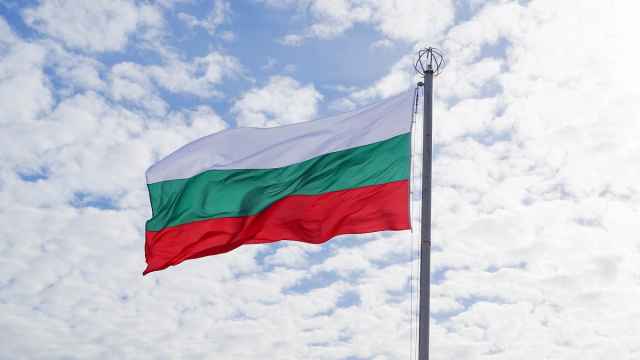At least eight suspected Russian intelligence officers traveled to Bulgaria around the time a local arms dealer was poisoned in 2015, the investigative outlet Bellingcat reported on Saturday.
Bulgarian arms dealer Emilian Gebrev survived the April 28, 2015, poisoning attempt in Sofia. Investigators reopened Gebrev’s case in 2018 when he linked his poisoning with that of double agent Sergei Skripal and his daughter in Britain.
Bulgaria’s chief prosecutor said this year that one of the three suspects in the Skripal poisoning had visited Bulgaria three times in 2015 and was in the country when Gebrev was poisoned. Last week, Spain named the same suspect — Denis Sergeyev — in its probe of Russia’s role in Catalonia’s rejected 2017 independence referendum.
Sergeyev was one of eight GRU military intelligence agents who traveled in and out of Bulgaria in the weeks before and after Gebrev’s poisoning, Bellingcat reported Saturday.
It said the eight agents belong to an elite overseas operations sub-unit of GRU Unit 29155, which The New York Times reported oversaw a campaign to “destabilize” Europe.
European officials believe Sergeyev — using the alias Sergei Fedotov — oversaw the Skripal poisoning mission, The New York Times said. He and a second man using the alias Sergei Pavlov traveled to Britain one year before the 2018 poisoning, it reported.
According to Bellingcat, Pavlov and Fedotov traveled to Bulgaria two months ahead of Gebrev’s poisoning in 2015.
Another traveler named in Bellingcat’s report — Vladimir Moiseev, alias Vladimir Popov — has been sentenced in absentia by Montenegro over a 2016 election-day plot to topple its government.
Bellingcat said it was able to track the alleged agents’ movements because they used real birth dates on travel passports that bore false identities. Sergeyev was reported to have used the same alias — Fedotov — when traveling to both Bulgaria in 2015 and Barcelona in 2017.
Gebrev and his son reported similar poisoning symptoms in May 2015, a month after his initial poisoning, during another one of Sergeyev’s stays in Bulgaria under the name Fedotov.
Bellingcat said Gebrev’s arms sales company Emco had faced a long attempt to discredit it.
“In the absence of logical alternative explanations, Gebrev’s own hypothesis that he may have been targeted based on false information fed by competitors to the Kremlin, stands out as the most plausible scenario,” it wrote.
Reuters contributed reporting to this article.
A Message from The Moscow Times:
Dear readers,
We are facing unprecedented challenges. Russia's Prosecutor General's Office has designated The Moscow Times as an "undesirable" organization, criminalizing our work and putting our staff at risk of prosecution. This follows our earlier unjust labeling as a "foreign agent."
These actions are direct attempts to silence independent journalism in Russia. The authorities claim our work "discredits the decisions of the Russian leadership." We see things differently: we strive to provide accurate, unbiased reporting on Russia.
We, the journalists of The Moscow Times, refuse to be silenced. But to continue our work, we need your help.
Your support, no matter how small, makes a world of difference. If you can, please support us monthly starting from just $2. It's quick to set up, and every contribution makes a significant impact.
By supporting The Moscow Times, you're defending open, independent journalism in the face of repression. Thank you for standing with us.
Remind me later.






